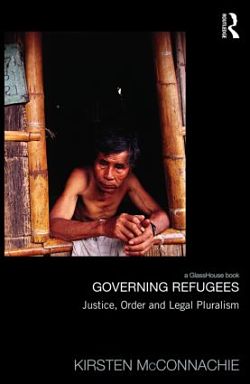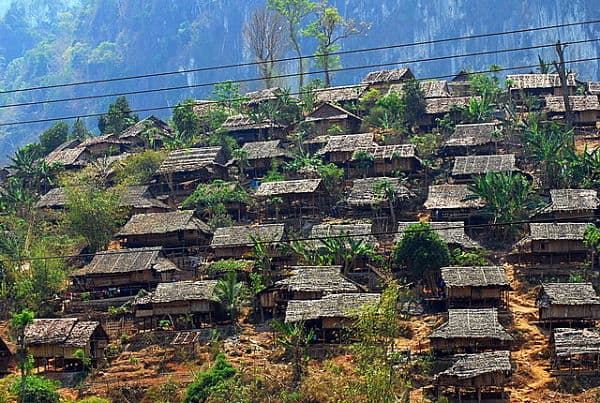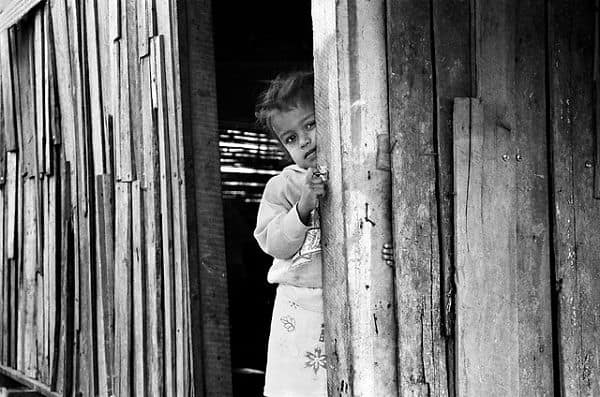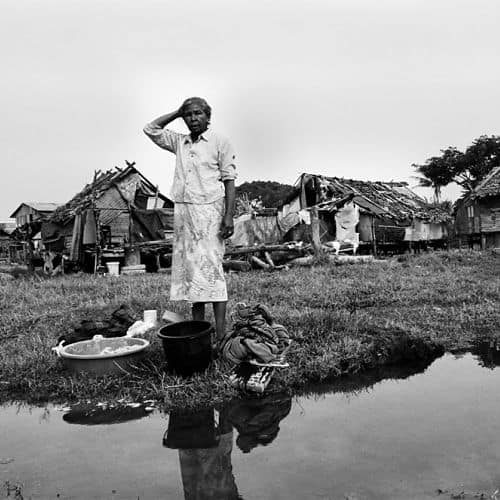I was visiting Chiang Mai, Thailand, at around the same time travel magazines began to herald Myanmar as the “it” destination of 2015. When I mentioned my desire to get with “it” to a Song Thaew driver he advised against it by simultaneously shaking his finger and head at me followed making the motion of a machine gun, in essence conveying the ever-present danger of a visit. This sharply contrasted with the welcoming full colour spreads in Condé Nast and Travel and Leisure that claimed relative stability, marginalised the possibility of danger, and evoked the pleasure of a destination whose time had come. Of course, as Lipstiz (2006) has noted for New Orleans, the touristic gaze and representation thereof often gloss the cultural depth and experiences of a place that many anthropologists attempt to convey in their writings. Beyer (2015: 3) situates the legal context within which Myanmar’s citizens live, noting that
In contemporary Myanmar, it is proving difficult even to find the law, a necessary precondition before one can hope for justice. The law in Myanmar is shrouded in an aura of secrecy due to the inaccessibility of the legal process. Owing to its entanglement with politics, it also has a reputation for serving only the powerful.
The marginalisation of citizens from the State legal system is highlighted in McConnachie’s Governing Refugees: Justice, Order and Legal Pluralism, which conveys the experiences of Karen refugees through an examination of the politics and practices of everyday life, and the legal repercussions thereof, in refugee camps located near the Thai-Burma Border. McConnachie grounds her analysis theoretically in legal anthropology and comparatively by initially providing a thorough overview of refugees worldwide, then moving into a comparative approach, thereby situating the specifics of Karen in Thai refugee camps with other well-researched refugee camps. McConnachie marshals the existing literature to situate and ground her analysis of what actually happens in camps, something that she notes is generally missing in the literature on refugees.
 She begins Chapter 1, Governing Refugees, by noting that refugee camps are not “isolated zones of ‘exception’ but a pluralistic and networked web of legal and political relationships” (p.3). McConnachie touches on the material circumstances of Karen refugees in camps by noting their political vulnerability and economic dependence in the face of ever-diminishing resources associated with donor fatigue. At the individual economic level, jobs are scarce and opportunities for self-employment are rare. Many refugees come to the camps with extensive practical knowledge of subsistence agriculture, however these skills are often left underutilised with a lack of access to the tools and land necessary to carry these practices out. Likewise, prohibitions on cutting bamboo in forest preserves surrounding refugee camps create a reliance on The Border Consortium to provide building materials. Additional anxieties of refugees include the possibilities of resettlement and repatriation coupled with the arrival of more recent refugees that work in unison to shift camp demographics, loyalties, and expertise. Despite these uncertainties, McConnachie describes camp life as structured and industrious. Furthermore, McConnachie highlights that refugee camps offer up new possibilities for agency by destabilising gender-based expectations, allowing women to more fully participate in education, formal leadership, and civil society.
She begins Chapter 1, Governing Refugees, by noting that refugee camps are not “isolated zones of ‘exception’ but a pluralistic and networked web of legal and political relationships” (p.3). McConnachie touches on the material circumstances of Karen refugees in camps by noting their political vulnerability and economic dependence in the face of ever-diminishing resources associated with donor fatigue. At the individual economic level, jobs are scarce and opportunities for self-employment are rare. Many refugees come to the camps with extensive practical knowledge of subsistence agriculture, however these skills are often left underutilised with a lack of access to the tools and land necessary to carry these practices out. Likewise, prohibitions on cutting bamboo in forest preserves surrounding refugee camps create a reliance on The Border Consortium to provide building materials. Additional anxieties of refugees include the possibilities of resettlement and repatriation coupled with the arrival of more recent refugees that work in unison to shift camp demographics, loyalties, and expertise. Despite these uncertainties, McConnachie describes camp life as structured and industrious. Furthermore, McConnachie highlights that refugee camps offer up new possibilities for agency by destabilising gender-based expectations, allowing women to more fully participate in education, formal leadership, and civil society.
In Chapter 2 McConnachie situates the Karen historically in Burma by discussing the development of ethnic identity, nationalism, and resistance.
In one of the world’s most protracted armed conflicts, the Karen have been the victims of continuous and oftentimes escalating violence at the hands of Burmese Army from the 1960s onwards with a proliferation of documented human rights abuses and hundreds of thousands of internally displaced persons.
The first ‘temporary shelters’ in Thailand, now refugee camps, occurred in 1984 when the Burmese Army, rather than retreat during the wet season, maintained their position, forcing the Karen to remain in Thailand. McConnachie concludes this chapter by suggesting that the long-standing political marginalisation of the Karen helped to foster the robust and resilient governance heritage of Karen community governance structures, which have historically worked to provide essential services at the village level.
One manifestation of the Karen’s governance heritage is apparent in the refugee camps themselves, which are an environment that actively produces “thriving social capital and community” (p.39). McConnachie, in Chapter 3, The Camp Community, notes three dynamic and sometimes contested types of communities that comprise the camp: 1) A situational community of encampment in shared experiences of deprivation, stigma and vulnerability; 2) A ethno-national community of Karen or “Karenness” that does not have to contend with “Burmanization” or state-sponsored ethnic subjugation; and 3) A community of shared governance, designed to maintain the social and moral order, brought by the Karen from their villages. McConnachie explores the “governance palimpsest” of Karen refugee camps in Chapter 4, noting continuity of pre-colonisation and pre-missionisation: practices, sanctions levied, and beliefs, which have been supplemented by newer additions of Christianity and the Karen National Union. Despite this trend of overall continuity, McConnachie notes that refugee camps are not autonomous and refugee camp leaders vie for diffuse and negotiated authority with Thai authorities and international agencies, including the United Nations High Commissioner for Refugees (UNHCR).

Chapter 5 highlights the intricacies of camp governance. McConnachie begins by stating that globally, “two primary discursive threads exist in refugee policy, host governments see refugees as threatening and seek containment, while humanitarian agencies approach refugees as victims in need of protection” (p.81). McConnachie explains how policies stemming from containment and protection, or concerned paternalism, including the concern over the potential for the abuse of power by camp administrators, limit the individual and collective autonomy, sovereignty, and agency of Karen refugees. This concern for the potential of abuse is used in attempts to limit the camp’s internal governance structures, including the administration of justice, which McConnachie refers to in Chapter 6 as “the struggle for ownership of justice” wherein regimes of knowledge and legitimacy are continually contested by state, international, and camp actors.
McConnachie particularly critiques the UNHCR’s approach, which delegitimises and dismisses popular support amongst refugees for camp governance structures in the name of protecting refugees who are supposedly misguided, oppressed, or ignorant of the way true governance structures should operate in terms of human rights standards and due process.
She notes that the supposedly legitimate alternative state justice systems are riddled with their own procedural and human rights concerns. In Chapter 7 McConnachie examines “the influence of international human rights norms on camp justice practice” (p.132) primarily through the action of Karen Women Organisation (KWO), which struggles to harness the authoritative power, and funding, of international agencies whilst attempting to maintain KWO’s local legitimacy. KWO works to translate international normative standards of sexual and gender based violence into locally meaningfully dialogues. This culturally moderated approach to human rights is done in order to raise awareness, increase reporting of incidences, and ensure that sexual and gender based violence cases are handled in the camp, or by Thai authorities where requested by the victim/survivor. Tensions in normative standards also apply to youth, whom camp management considers to be unduly influenced by outside forces that produce “delinquents” whom are a source of camp disorder.
These same youth are portrayed as “victims” by international human rights staff, drawing from the Convention on the Rights of the Child.

In the ten-page final chapter entitled Beyond Encampment, McConnachie effectively and succinctly concludes her text in three ways. First, she summarises her main contentions regarding Karen refugees in Thailand, primarily “that camps can be functional societies even after decades of encampment” (p.155) and where appropriate compares and contrasts these to other refugee camps and populations. Secondly, she explains that although the overall success of self-governance in camps has arisen due to very particular historical circumstances, it has nevertheless occurred and hence can work. McConnachie suggests that external agencies should begin by considering whether a ‘community’ exists with clear and locally legitimate community representatives. She is careful not to romanticise, overstate, or simplify the practice of self-reliance, noting that international support, “will always be essential not only for financial assistance but also for political advocacy… [particularly]… as a buffer between refugees and the host society” (p.162). Lastly, in the book’s final subsection, Nothing about refugees, without refugees, McConnachie suggests a key shift is necessary in continuing discussions of repatriation and the future of the Karen refugee camps in Thailand, namely providing a place at the table for those historically left out of discussions, given that said inclusion often results in more just and lasting results whilst minimising anxiety and worry amongst refugees.
Taken together, McConnachie’s Governing Refugees: Justice, Order and Legal Pluralism, is a valuable contribution to legal anthropology and refugee studies. It is exemplary in providing sound support for the value of ethnographic work in unsettling simplistic assumptions underlying ideologies (or ‘pernicious premises’ (p. 2)) which, when used to justify State and international policies, are detrimental to the agency of vulnerable populations. Along these lines,
McConnachie echoes the call of many anthropologists and international human rights advocates to take seriously commitments to indigenous sovereignty embedded within the United Nations Declaration on the Rights of Indigenous Peoples.
References Cited
Beyer, Judith 2015 Finding the law in Myanmar. Anthropology Today 31(4): 3-7.
Lipsitz, George 2006 Learning from New Orleans:The Social Warrant of Hostile Privatism and Competitive Consumer Citizenship. Cultural Anthropology 21(3): 451–468.
McConnachie, Kirsten. 2014. Governing Refugees. Justice, Order and Legal Pluralism. Routledge. 200 pp. Hb £80.00. ISBN: 978-0-415-83400-1
*****************
Featured image (cropped) by Attila Husejnow (flickr, CC BY-NC-ND 2.0)



